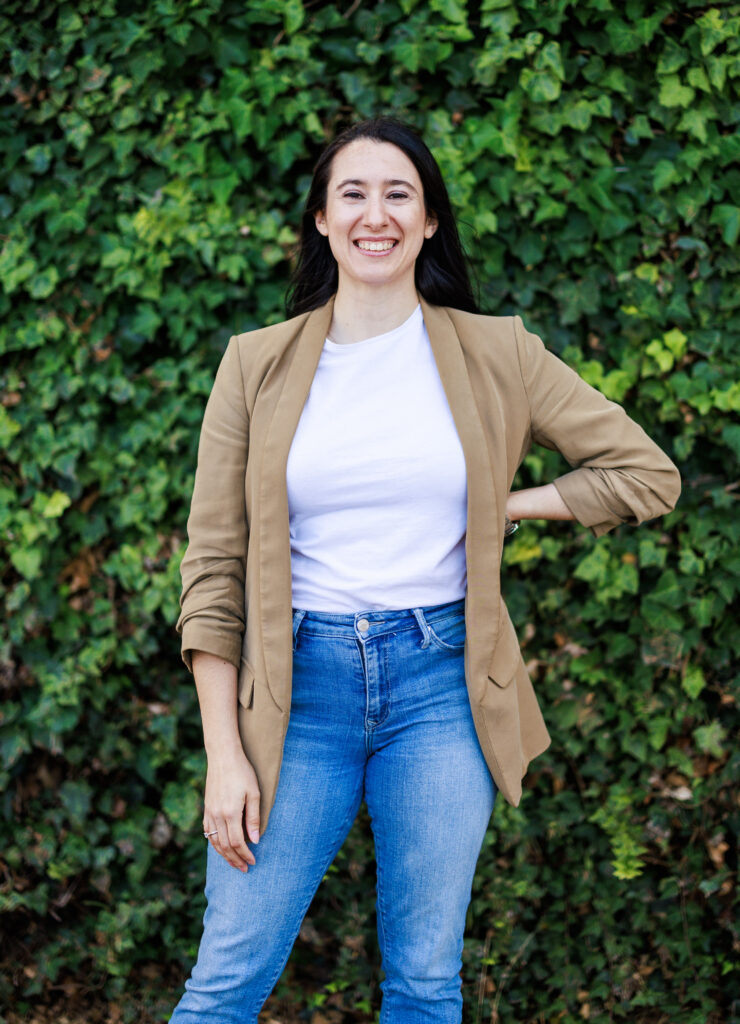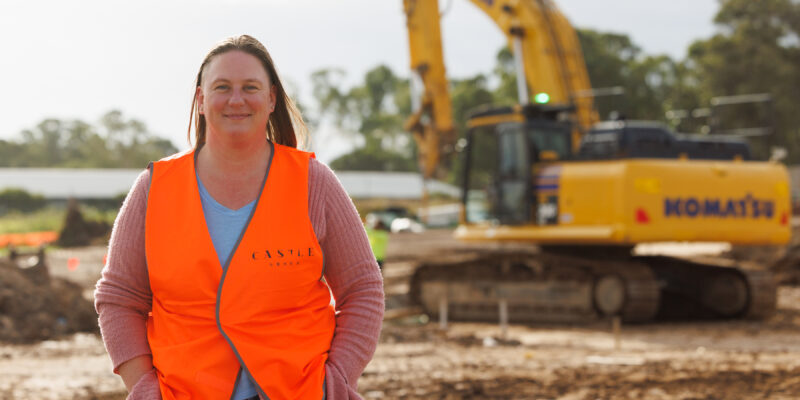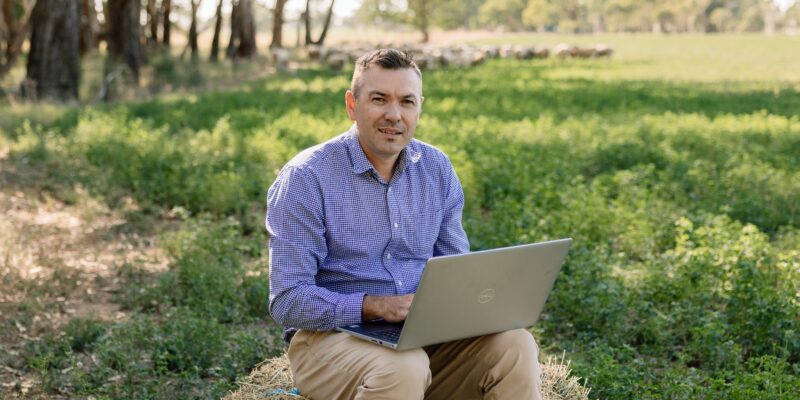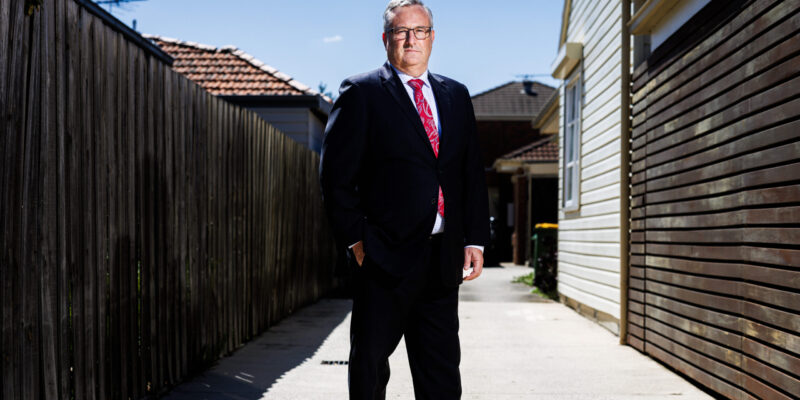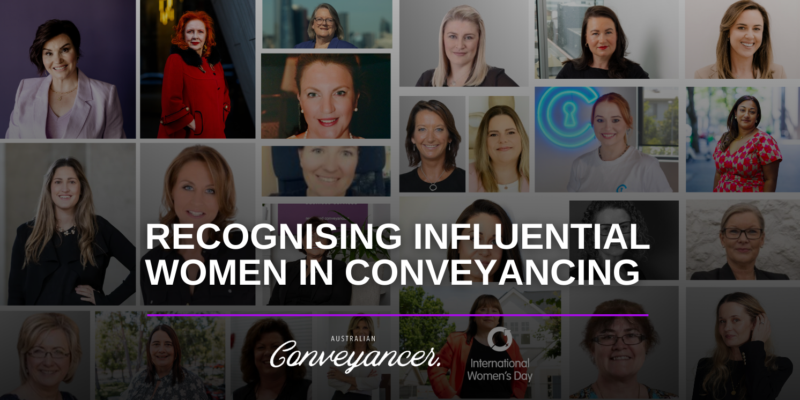Easing paint points and making dreams a reality
Melbourne-based conveyancer Melissa Barlas runs the premium conveyancing service Conveyed for individuals, couples and families buying, selling or transferring property. With more than 10 years’ industry experience, she also runs the popular The First Home Show podcast, which gives listeners tips for buying a property for the first time. In the wake of International Women’s Day, Australian Conveyancer sat down with Melissa to find out how she juggles demands of being a successful businesswoman and podcaster.

AUSTRALIAN CONVEYANCER: How did you get into conveyancing?
MELISSA BARLAS: It definitely wasn’t something I had in mind leaving school. In fact, going into my Master of Laws at Monash, I was in two minds whether I’d go into property or not. But it in my second year of law school I started working in property law and loved it.
AC: What keeps you excited about the work?
MB: I enjoy working with individuals and being able to really transform their lives through what I do. I feel that’s what I’m doing in conveyancing in the sense I’m not just doing a transaction, but I’m taking someone from never having owned a property before, to finally getting an opportunity to come into the market and acquire their first home. I’m taking people on the journey into their own property where they can start an independent life.
AC: You’re also helping other conveyancers via consulting, how’s that going?
MB: It’s an early venture for me to go into a bit of consultancy, but there’s already been quite a lot of interest from conveyancers to help them scale and grow their businesses.
They want to get guidance from a person that actually does conveyancing, they don’t want to hear it from a business coach, because a business coach has no idea what they’re going through, they can’t relate. I come from a position where I can totally relate to them because I’ve done it for so long – I’ve been in the industry for 10 years now.
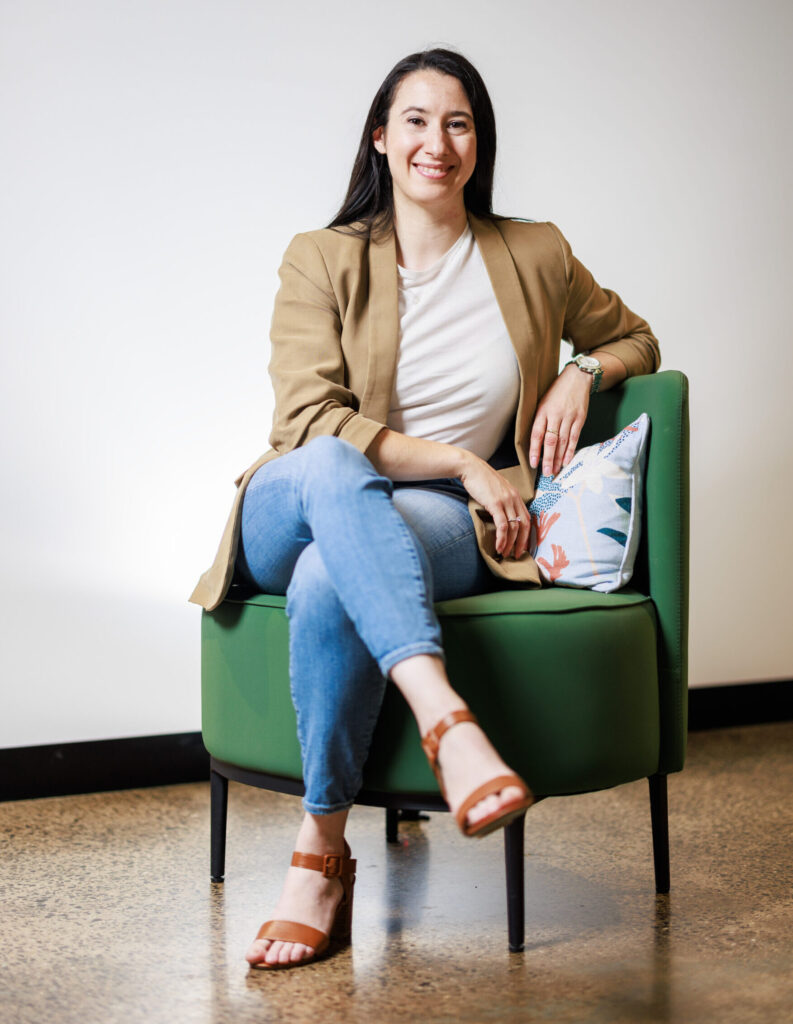
AC: What are the main pain points you see for conveyancers?
MB: When you go to law school, then do your conveyancing qualification, and then go on to become a licenced conveyancer, you’re taught to be a technician. You’re taught to be on the tools, to service clients and that’s where the buck stops, you’re not taught about things like marketing, which may not come naturally. You also don’t know how to scale a business and we often don’t carry a natural entrepreneurial mindset. It’s that stuff that I try to teach.
AC: What challenges do women in the industry specifically face?
MB: I certainly feel that with in my time in conveyancing, I’ve dealt with many more female business operators than men, and I’ve found the industry supportive of female progression. It could be the nature of the work that plays a part. You could argue conveyancing involves a high administrative burden and women have traditionally been geared to more administrative roles within law firms or other businesses. Additionally, conveyancing involves a lot of due diligence and I know a lot of brilliant female business owners, lawyers and conveyancers who have such strong attention to detail. But then again, I’m not sure if that’s a particularly female thing or not.
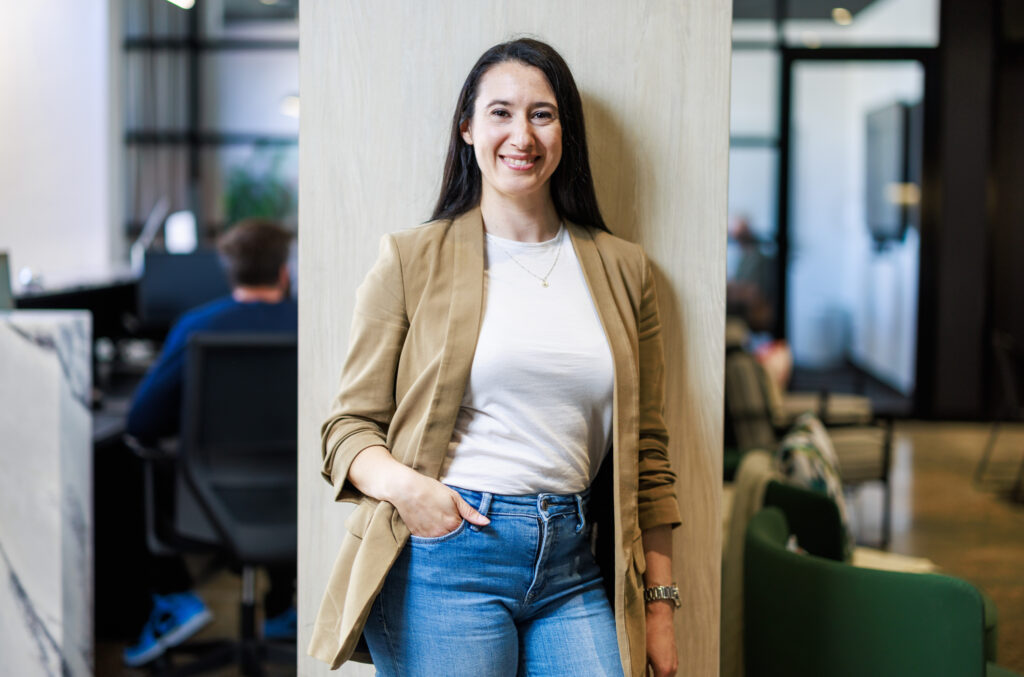
AC: What other issues are you noticing in the industry right now?
MB: In conveyancing everyone’s used to being in opposing positions and that can inform views about other members of the industry. I feel that we need to shift that mindset, and that’s what I try to do by bringing the community together and helping clients to see each other not as competitors but as allies who can help one another grow. Whether it’s by helping each other scale, sharing knowledge with each other so the profession becomes more educated, or through property insights or legal updates, I feel there should be a greater sense of community in the industry. That’s exactly what I’m trying to achieve.
AC: Your podcast The First Home Show is proving very popular, how’d it come about?
MB: I think a big part of the success is because the podcast centres around first homebuyers. That’s the market that really needs all the education so they can get to step into the market right now, in terms of ways to help them to lock down that first mortgage.
AC: On that, what’s the outlook like for first home buyers right now?
MB: It’s difficult. From a finance point of view, I’m seeing a lot of people trying to access the market, but lenders have become quite conservative with their lending policies, as well as the impact of successive interest rate hikes. Lenders are offering less money, less of a loan, for first time buyers to come into the market and buy something. When that happens, it unfortunately can catch first time buyers by surprise. They think ‘I don’t have enough money, but now I need to put in an extra say 20 grand, where am I going to find that’?
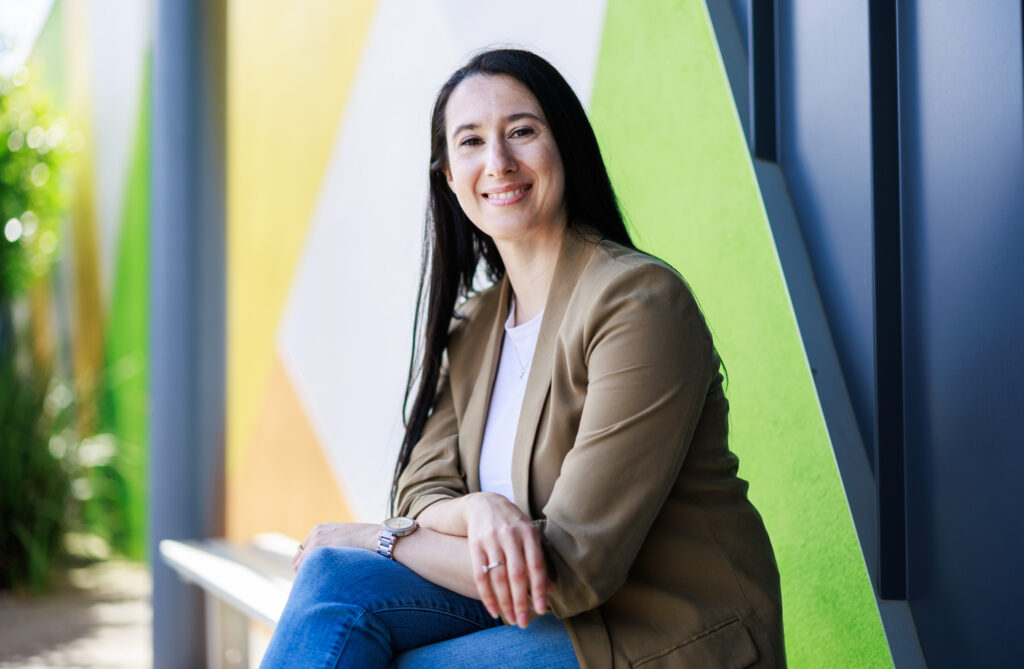
AC: Given the challenges, what tips do you have for first home buyers?
MB: In terms of strategies to try and save money, there’s a range you can consider. First off, it’s a good idea to be more conservative with your spending. It can also help to speak to a
mortgage broker from close to the outset, to help you understand exactly what your budget is. Also, try to keep a flexible mindset to pivot potentially from where you want it to buy. For instance, it might end up being just a little bit further out than you’d originally thought but remember, if it means that you’ll be able to get into the property the market, then so be it.
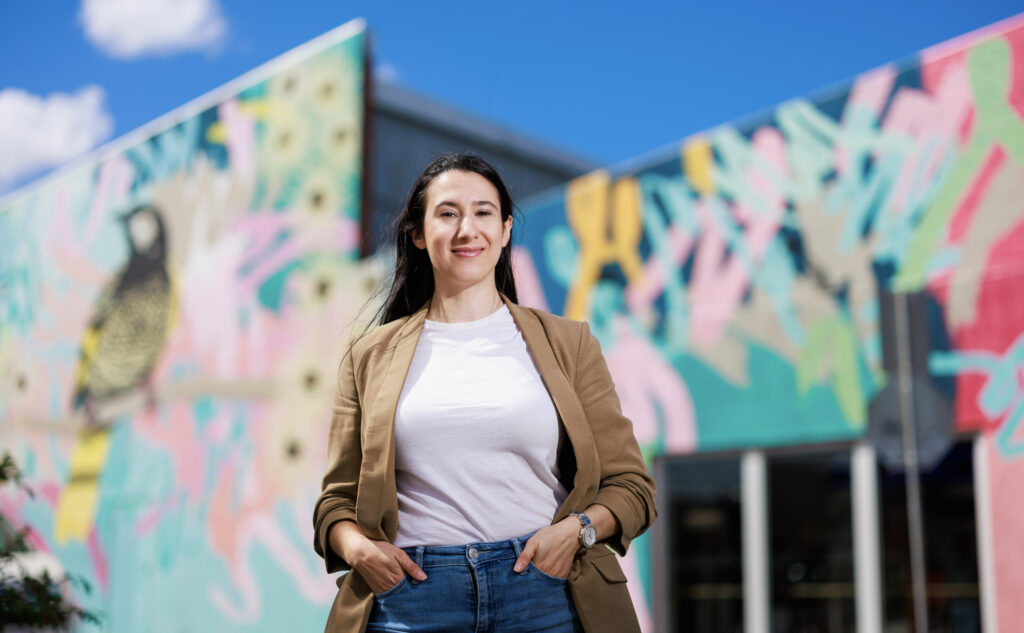
AC: Saving can be tricky as living costs rise, any words of wisdom here?
MB: Sure, there are some common mistakes people make along the way here. If it’s your first home, be more conservative with your spending and track your expenses very closely because everything helps when you’re trying to access the market. What’s more, if you are going into the market, take a strategic view. A lot of first homebuyers, just for affordability reasons, tend to go for units and apartments, but they’re a dime a dozen. I see a lot of people being attracted to the high-rise apartments, the ones that have a lot of supply.
AC: What should first home buyers watch out for with high-density?
MB: You need to be very careful because when you buy in a high-density area, like massive apartment buildings, it may not set you up properly for your next property. There may not be enough growth to continue to gain enough equity in that first property to help you for the next one, if wealth creation is your objective. If it is, try to get as informed as possible on what it means to use equity to help set yourself up for future properties, and grow wealth.
AC: What about the timing of an offer, what are some key considerations?
This is a question that is front of the mind for every home buyer, and I’d say being well-informed is again a powerful advantage. It’s prudent to only make an offer when you’ve analysed factors such as the property’s location, its unique character, floor plan, and size – attributes that impact its value. Critically, make sure the data you’re relying on is accurate and comprehensive. If so, it’ll put you in a good position to make the most appropriate offer. Before all this, don’t forget to go to the property’s open inspections to get a firsthand insight into the property’s pros and cons, arrange for a pest and building inspection, and thoroughly compare sale price with others in the area. Also, make sure to get a deep understanding of the property’s sales history and secure pre-approval on your finances.
AC: How about choosing a conveyancer, any words of warning?
MB: There are many brilliant conveyancers out there and my firm Conveyed really prides itself on high quality conveyancing because I think that’s the standard we need to aim at. One thing I will say is that as an industry we jeopardise that when we start charging stupidly cheap fees. A lot of conveyancers will charge under $1,000, I’ve seen that many times, and clients get quite attracted to that, it looks enticing. However, with providers charging that kind of price, the work may suffer. You have to question how much is done for that price.
So, when as a first home buyer you’re seeing those price tags, don’t go ‘I’m saving a buck, let’s go with it’. You have to actually probe things like ‘Am I going to be able to speak to someone in an emergency?’ as it’s likely they’re going to attract a high volume of clients. In these cases, if someone’s tracking a high number of clients, where do you think your matter is going to sit in the pile? It might sit in the middle somewhere, it might sit at the end.
AC: What are tell-tale signs of a good operator?
MB: for anyone looking to engage the services of a conveyancer, the right qualifications and credentials are pivotal. It’s critical your chosen conveyancer is qualified and licensed to do the job. Here, you want to ensure you’re not dealing with someone without the necessary qualifications, or who doesn’t work with conveyancers that are qualified and licensed to assist you. Conveyancers should be licensed and be members of the Australian Institute of Conveyancers. You also should make sure they’re registered with the Legal Services Board. To be extra careful, check if the firm principal has a practising certificate and if the conveyancers assisting them are relevantly licensed. Accreditations help guarantee the conveyancer is duty bound to adhere to strict ethical and professional standards.
AC: You mentioned price earlier, are good conveyancers necessarily expensive?
MB: Once you do your homework you realise it’s not about going with the cheapest, it’s about ‘what’s the best fit for me’. I educate clients about that. At the same time, it’s my view that conveyancers should really be reassessing their pricing structures and charging more, because our work is valuable and it should not be considered cheap. If you’re charging too cheap, it’s sending the wrong message to the customer about your business.
From a customer’s point of view, if you’re going in looking for a conveyancer, you need to be asking ‘what value for money am I getting with this person?’ So, it’s asking questions about things like their expertise and checking to see, for instance, if it’s someone from offshore that’s answering the phone or is it someone based here? All that stuff really matters because it’s a reflection of what you’re going to get going forward.
* The interview has been edited and condensed for clarity
